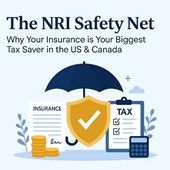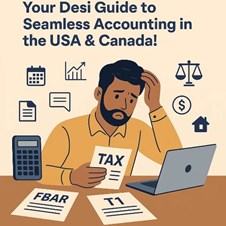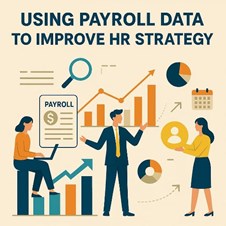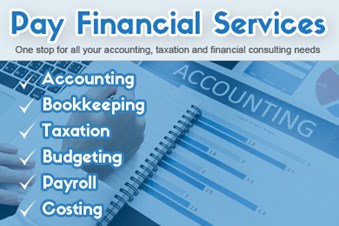Understanding Taxes on 401(k) Distributions: What You Need to Know
Navigating the complexities of 401(k) distributions can be challenging, especially when it comes to understanding the tax implications. Whether you're planning for retirement or considering an early withdrawal, it's crucial to know how these distributions will affect your finances. Let's dive into the key aspects of 401(k) distribution taxes and how you can manage them effectively.
What is a 401(k) Distribution?
A 401(k) distribution refers to the withdrawal of funds from your 401(k) retirement account. These distributions can occur for various reasons, such as reaching retirement age, rolling over funds to another retirement plan, or taking an early withdrawal to cover unexpected expenses.
Tax Implications of 401(k) Distributions
1. Standard Withdrawals:
Once you reach the age of 59½, you can start withdrawing from your 401(k) without incurring an early withdrawal penalty. However, these withdrawals are taxed as ordinary income, meaning they will be subject to your current income tax rate.
2. Early Withdrawals:
If you withdraw funds before reaching 59½, you may face a 10% early withdrawal penalty in addition to regular income taxes. There are exceptions to this penalty, such as for certain medical expenses or if you become permanently disabled.
3. Rollover to another Plan:
Moving your 401(k) funds to another retirement plan, like an IRA, can be done without immediate tax consequences if done correctly. A direct rollover, where the funds are transferred directly to the new plan, avoids taxes. However, an indirect rollover, where the funds are sent to you first, may incur taxes if not redeposited within 60 days.
Managing Your 401(k) Distributions
- Plan Ahead: Consider your tax bracket and future income needs when planning your withdrawals. Spreading out distributions over several years can help manage your tax liability.
- Understand Exceptions: Familiarize yourself with the exceptions to the early withdrawal penalty to avoid unnecessary taxes.
- Consult a Professional: Tax laws can be complex and subject to change. Consulting with a financial advisor or tax professional can provide personalized advice tailored to your situation.
Additional Considerations
- Required Minimum Distributions (RMDs): Once you reach age 72, you must start taking RMDs from your 401(k). Failing to take the required amount can result in hefty penalties.
- State Taxes: In addition to federal taxes, your 401(k) distributions may also be subject to state taxes, depending on where you live.
Conclusion
Understanding the tax implications of your 401(k) distributions is essential for effective retirement planning. By staying informed and seeking professional advice, you can make the most of your retirement savings and minimize your tax burden.
Sulekha Finance and Taxation
If you're looking for expert advice on managing your 401(k) distributions or any other financial matters, Sulekha Finance and Taxation is here to help. Our platform connects you with top finance and taxation professionals in the USA and Canada. Visit Sulekha Finance and Taxation today and take control of your financial future!
Searching for Financial & Taxation Services? Let’s make your search simple with professionals!
Take your Financial & Taxation Services to the next level with Sulekha. Boost your online visibility, connect with more clients, and grow effortlessly!
Blogs Related to Financial & Taxation Services

Why Every Family Needs a Financial Professional Today
Money Is Confusing. A Financial Expert Makes It Simple. Between changing markets, tax rules, unpredictable expenses, and overwhelming investment choices, managing money has become more complex than ever. Even the smartest professionals often feel lo

Smart Money Starts Here: Meet Soujanya Vundavalli
Your Trusted Guide to a Confident Financial Future In a world where financial decisions feel overwhelming, confusing, and—let’s be honest—sometimes downright scary, finding a professional who brings clarity and calm is a gift. That’s exactly what S

The NRI Safety Net: Why Your Insurance is Your Biggest Tax Saver in the US & Canada
Building a Life Abroad Requires a Solid Foundation When you migrate from India, you're not just moving house; you're moving your entire financial world. You've worked tirelessly to build a successful career and a stable life for your family in the U

Stop Stressing Over Tax Season: Your Desi Guide to Seamless Accounting in the USA & Canada!
NRI Tax Jitters? You Are Not Alone!

How Can You Use Payroll Data to Improve HR Strategy?
How Can You Use Payroll Data to Improve HR Strategy? Payroll isn’t just about paying employees—it’s a goldmine of business intelligence. When analysed strategically, payroll data reveals patterns that can transform your HR strategy

Is Your Bookkeeping a Mess? Are You Missing Out on Growth Opportunities?
Is Your Bookkeeping a Mess? Are You Missing Out on Growth Opportunities?




